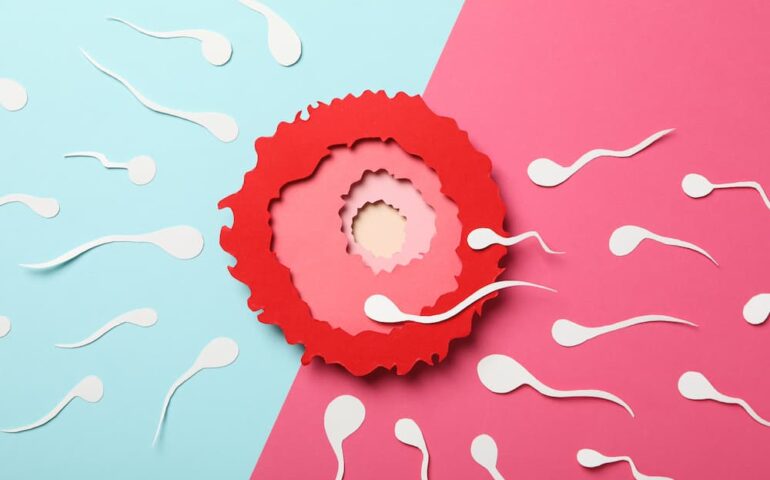
Our most viewed articles
All articles


Reliable pregnancy tests: how to choose?

Pain during ovulation: causes and treatments

7 Ovulation Symptoms You Shouldn’t Ignore
Access more articles, tips, and Mya by downloading the May app
Try the app for free for 14 days.


Getting pregnant fast: our scientific advice

Fertilization: Understanding the Early Stages of Pregnancy

Cervical mucus: what role does it play in fertility?

Ovulation Period: How to Predict It Effectively?
Fertility: Conceiving a child
Fertility is the ability to conceive a child biologically (as defined by the national health insurance). It’s an issue that affects both men and women, and more broadly, couples who wish to have a child.
In women, fertility refers to the ability of the ovaries to produce a sufficient number of high-quality eggs. In men, fertility is assessed through sperm analysis, looking at both the quantity and quality of sperm produced.
Thousands of babies are born each year. In 2023, no fewer than 678,000 babies were born in France — proof that fertility is a major concern!
A non-issue for some, a true obstacle course for others… Conceiving a child isn’t always smooth sailing. To guide you, May answers all your questions.
How can you diagnose a fertility problem?
If you have concerns, or after a year of unsuccessful attempts (6 months if you’re over 35), a medical consultation can help identify (or rule out!) an underlying fertility issue and support you in your journey to parenthood.
Diagnosis usually involves two key steps (ideally, both partners should be present):
-
Initial consultation: to determine if there’s an issue. Your doctor will ensure you understand the fertilization process, check for any risk factors, and examine for any reproductive abnormalities.
-
Further testing: Based on the consultation, your doctor may recommend fertility tests, such as menstrual cycle analysis, hormone level blood tests, ultrasounds to detect polycystic ovary syndrome, fibroids, or endometriosis, or a sperm analysis to check for abnormalities.
What factors affect fertility?
Conceiving a child can take time—on average, up to a year. Lifestyle and external factors can influence and reduce the chances of successful conception in both men and women. These include:
-
Age: Fertility declines with age (egg quality decreases, sperm may become less viable).
-
Smoking and drug use: Harmful for overall health and especially fertility.
-
Alcohol: Excessive alcohol consumption can negatively impact fertility.
-
Lifestyle: Factors such as obesity, poor diet, and lack of exercise can contribute to fertility issues.
-
Pollutants: Chemical substances and endocrine disruptors found in cleaning products, cosmetics, or processed foods may impair fertility if frequently used or consumed.
What are the signs of fertility issues?
As mentioned, fertility can be affected by factors like age or lifestyle. Certain medical conditions can also make conception difficult. Here are some common signs:
In men: Fertility problems often relate to poor or absent sperm quality. Symptoms may not be obvious and are usually identified through medical tests (especially a sperm analysis).
In women: Fertility issues often result from fallopian tube disorders, ovulation issues, or endometriosis. Common signs include:
-
Very irregular periods,
-
Extremely painful menstruation (dysmenorrhea),
-
Pain during intercourse.
How to treat infertility?
Depending on your test results, different treatments may be offered—either to address the root cause or to help you conceive despite the problem if it cannot be resolved directly.
In some cases, medical treatment may not be necessary. Lifestyle changes alone may help, such as:
-
Quitting smoking, alcohol, or drug use,
-
Having intercourse during ovulation periods,
-
Improving diet,
-
Regular physical activity.
Photo credit: vanenunes
